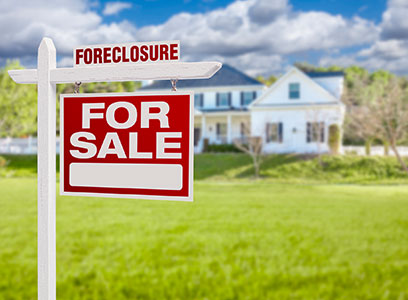
Balancing Legislative Changes and Navigating New Jersey Foreclosures in the Face of a Pandemic
Federal and New Jersey Foreclosure Moratoriums in Response to the Pandemic
By: Simone Sebastian, Esq.
The pandemic has impacted industries across the board, and the default servicing industry is right there in the thick of it. It seems everywhere you look; new legislation is being rolled out, which affects a secured creditor’s right to proceed with a foreclosure action on a defaulted loan.
On March 19, 2020, New Jersey Governor Phil Murphy signed Executive Order 106 into effect, changing the terrain of foreclosures and evictions for the foreseeable future. Executive Order 106 directs that no Sheriff, court officer, or relevant agent may proceed with acting to remove individuals from residential properties through the eviction or foreclosure processes. The Executive Order is designed to stay into effect through the duration of the State of Emergency or for two months following the end of the declared Public Health Emergency, whichever ends later.
Executive Order 106 is to be read in conjunction with Assembly Bill No. 3859 and Senate Bill No. 2276, which clarify that foreclosure and eviction proceedings may be initiated or continued but that enforcement and removals must stay. Furthermore, President Joe Biden has signed an executive order that extends the foreclosure and eviction moratorium through the end of March. Additional extensions are not beyond the realm of possibility.
This legislation is important to protecting the core thread of our economy and families throughout the state. It has prompted lenders and servicers across the board to implement sweeping moratoriums that suspend any foreclosure-related activities on occupied residential properties to ensure full and total compliance with these policies. This approach, though well-meaning, misses the mark and potentially creates more problems than it resolves.
An overly broad approach puts loans in default at risk and unnecessarily extends timelines beyond the legislation’s intent. Instead, lenders and servicers should consider a full review of their inventory to implement the next steps that fully protect all of their rights and respect the protections for homeowners that are currently in place.
Lenders and servicers can and should continue to initiate and proceed on foreclosure actions, up to the point of Sheriff sale on loans that have been in default for two or more years. Failure to commence foreclosure actions in a timely fashion will only subject plaintiffs to additional scrutiny under the statute of limitations. For loans in default executed on or after April 29, 2019, the statute of limitations has been further reduced by A5001, which bars plaintiffs from commencing a foreclosure action more than six years after the maturity date, thirty-six years from the recording date of the mortgage, or six years from the date of default, whichever may be earliest.
For actions that have already been commenced but are currently on hold, plaintiffs should review such loans to ensure there has been no expiration of an active lis pendens and renew said lis pendens where necessary. This small action will reduce costs of ordering new title search reports or continuation searches, continue to cut off subordinate judgment creditors, condominium or homeowner association liens from impacting the ongoing foreclosure action, and reduce the likelihood of needing to extend a foreclosure timeline with the filing of an amended complaint.
Regardless of whether a foreclosure action was previously instituted or not, lenders and servicers are urged to continue to preserve their lien priority by curing of any defects in title, executing and recording of any assignments in mortgage needed to complete the chain of title, and soliciting homeowners for any available loss mitigation options. Taking the time to resolve any ancillary issues now is the most prudent way to reduce the risks of the unknown later down the road so as not to intrude upon the stays that are currently in place.
Despite the foreclosure ban, lenders and servicers continue to have a green light to proceed with foreclosures on vacant and abandoned properties without limitation. NJ Rev Stat § 2A:5073 (2013) carves out a foreclosure track specifically for vacant and abandoned residential properties, and that summary action process was expanded under NJ S3413. This foreclosure legislation requires lenders and servicers to produce clear and convincing evidence that the mortgaged real estate is vacant and abandoned but ultimately rewards a Plaintiff who is able to meet that burden with an accelerated foreclosure timeline. More notably, though, is that subsection (j) of the statute states that the Sheriff shall sell the property within 60 days of receipt of any writ of execution issued by the court or allows plaintiffs to pursue an Order appointing a Special Master, where the Sheriff is unable to comply with that time frame.
When all pandemic-related holds are lifted, there is no guessing how backlogged Sheriffs will be with scheduling and holding sales. Taking a closer look at loans now to determine eligibility for and commencement of actions under the vacant and abandoned foreclosure track may be the best way to circumnavigate agonizing delays at the point of Sheriff sale. For residential properties that do not qualify for the vacant and abandoned foreclosure track, these Sheriff sale delays will only be further compounded by the protections and procedural changes created by Senate Bill No. 3464 (and further discussed here: Unintended Consequences of Recent Legislation Regarding New Jersey Sheriffs Sales).
Moving forward with these recommendations is a thoughtful and appropriate way to proceed without compromising any of the homeowner protections which are currently in place. Fein, Such, Kahn & Shepard, P.C. is here to guide you through all of your default servicing needs, from commencement to completion. For more information about this article’s content or the services provided by our Creditors’ Rights Department, please contact Eric Kapnick, Esq. or Nicholas Canova, Esq.
Fein, Such, Kahn & Shepard, P.C. is a general practice law firm of more than 50+ attorneys serving clients in New Jersey, New York, and Pennsylvania. For nearly 30 years, the firm has offered innovative solutions to businesses and individuals in the areas of asset protection business planning, civil litigation, creditor representation in the areas of foreclosure, bankruptcy and collections, elder law, family law, personal injury, tax, and trusts and estates.
This Article does not constitute legal advice nor create an attorneyclient relationship.
© Fein, Such, Kahn & Shepard, P.C., all rights reserved. Permission is granted to reproduce and redistribute this article so long as (i) the entire article, including all headings and the copyright notice are included in the reproduction, and (ii) no fee or other charge is imposed.






